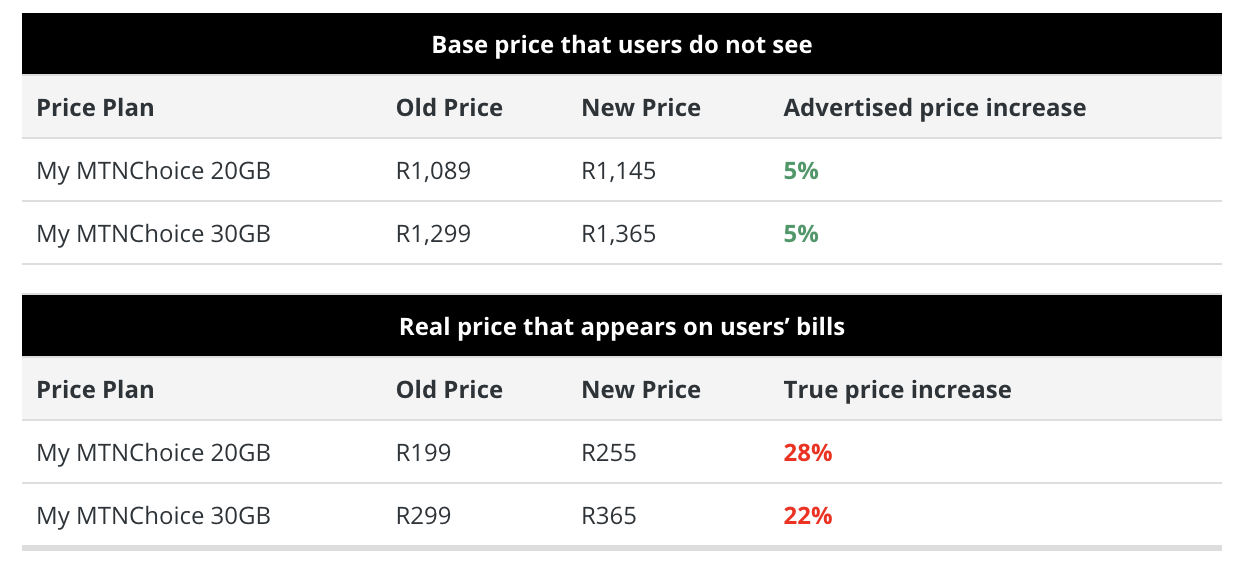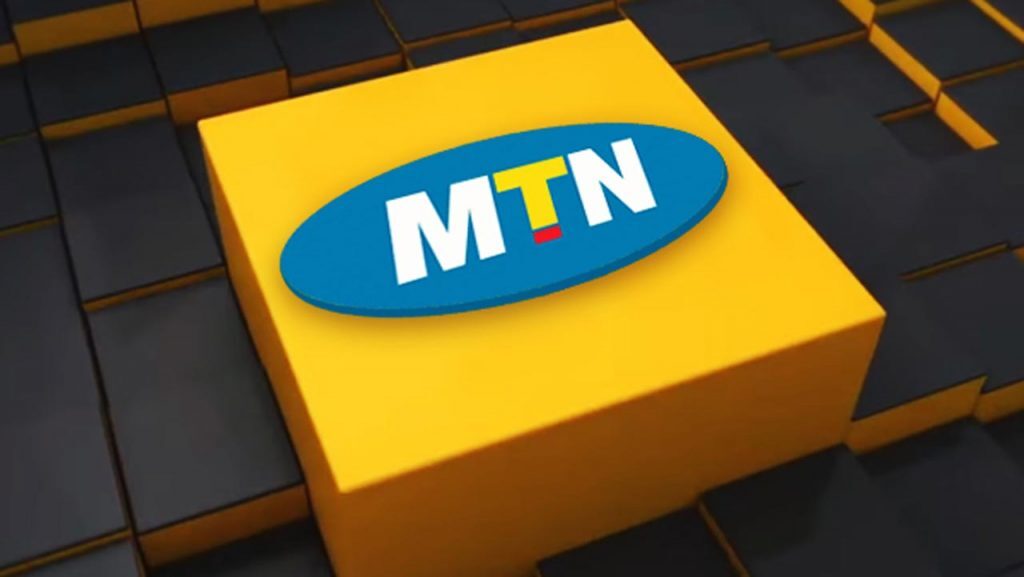Back in March, MTN announced an increase for its contract subscribers. The mobile service provider claimed that increases would be capped at 5%. The increase was set to go up in May, and go up it has. Except, for many MTN customers, the increase ended up being more than 5%. Way more.
“The tariffs will be an average increase of 5%, which is in line with inflation and comparable to the market,” said MTN CCO Mapula Bodibe when the initial price increases were announced. There was even a table that showed the old and new prices that customers would be receiving in May. It wasn’t pretty, but it was manageable.
Now some MTN customers have started reporting that their bills have shot up by over 20%. According to MyBroadband, some saw an increase of 22% on a monthly bill – climbing from R300 up to R365. Others are claiming similar increases.
Liar Liar
But why have prices shot up more than the expected 5%? The reason is simple. MTN has not been increasing the ‘price we see’ by 5%, but rather the ‘base price’ which customers don’t see. If that makes no sense to you, you aren’t alone.
Every contract with MTN has a real price, which customers see in promotional advertising and the price they see on their bills. What MTN doesn’t say is that there is a base price, which costs a lot more than advertised, which MTN then ‘discounts’ from the price, leaving us with the price we can see.
MyBroadband breaks it down as follows: A 24-month My MTNChoice 30GB contract costs R300. But hidden under that is the base price, which equals R1,300. MTN discounts it by R1000.00, leaving the R300 price. The issue is that MTN increased prices by 5% on the base price of its contracts. Following a 5% increase, the My MTNChoice 30GB contract has a base price of R1,365, leaving customers paying R365/m after the discount.
The increase is indeed 5%, but not at the prices that MTN communicated in March this year. The service provider is technically correct, but the price increases come across as very misleading. It’s not immediately clear whether all of the company’s contracts are affected this way. It doesn’t appear to be an across-the-board problem.
Below is a table showing what some price increase should have been, and what they actually are now.

Moving the goalposts
MTN SA’s executive for corporate affairs Jacqui O’Sullivan, speaking to MyBroadband, said, “What is important to note is that the increase is implemented on the base plan that customers have with us”. Clearly, this wasn’t important enough to note back in March when the hikes were increased.
“This means that although some customers would have received a discounted offer on sign-up, the increase would have applied to the original plan price, and therefore this would have effectively meant a slightly higher increase than 5% for some customers, although the overall discount amount that was originally applied, remains in place.”
O’Sullivan mentioned that some MTN customer contracts would be ending later this month. In other words, these contracts would fall away and become a month-to-month pricing arrangement, which follows ‘base plan’ prices.
“To those customers, this may seem like a significant price change, but that would have occurred, regardless of this specific price increase coming into effect,” she said.
“In this instance, and as we always do on contract expirations, we will be engaging customers to discuss their contract renewal and upgrade options, moving forward.”
Source: MyBroadband




